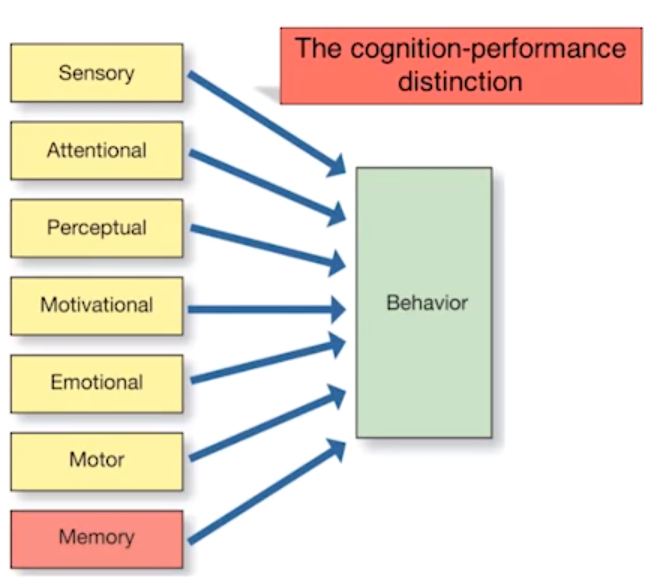- This note focuses on neuropsychological assessment, a method used to assess brain function in healthy and impaired individuals.
- Neuropsychology is applied science concerned with the relationship between brain function and behavior.
Purposes of Neuropsychological Assessment
- Diagnosis: Identify potential brain disorders based on behavioral performance.
- Patient Care & Planning: Determine appropriate care based on cognitive abilities.
- Rehabilitation & Treatment Planning: Identify areas needing the most cognitive focus for improvement.
- Research: Investigate the link between brain regions and specific behaviors.
Factors Affecting Performance

- Sensory Abilities: Can the person see/hear instructions?
- Attentional Abilities: Is the person paying attention?
- Motivation & Emotional State: Does the person want/feel able to participate?
- Motor Skills: Can the person execute required movements (writing, drawing)?
Focus of Neuropsychological Assessment
- Cognition: Mental processes like learning, memory, problem-solving.
- Emotionality: Emotional regulation and expression.
- Executive Functions: Planning, goal-setting, self-control (associated with the frontal lobes).
Historical Assessment of Cognitive Function
- IQ Tests: Traditionally used as a single measure of intelligence (criticized for limitations).
- Modern Approach: Assesses specific cognitive domains.
Domains of Cognitive Function
- Receptive Function: Understanding spoken/written language.
- Memory & Learning: Ability to learn and retain information (short-term/long-term).
- Thinking: Problem-solving, reasoning, performing calculations.
- Expressive Function: Communicating answers through speech, writing, or motor actions.
Types of Neuropsychological Assessments
- Screening Approach: Brief assessment to determine if further testing is needed. (e.g., MMSE, MoCA)
- Hypothesis Testing Approach: Focused evaluation of a specific cognitive domain or research question.
- Battery Approach: Comprehensive assessment using various tests to evaluate all cognitive domains (time-consuming and tiring for participants).
Examples of Neuropsychological Tests
-
Wechsler Memory Scale (WMS): Comprehensive memory assessment battery.
- Subtests: Personal & Current Information, Orientation, Logical Memory, Digit Span, Visual Reproduction, Paired Associates Learning.
- Delayed Recall: Measures ability to retain information after a time delay (sensitive indicator of memory function).
-
Word List Learning Tasks: Assesses learning and memory over repeated presentations with delayed recall.
Example of Executive Function Assessment
-
Stroop Color Word Test: Measures attentional control and inhibitory control.
- Tasks: Read colored words aloud, name the color of ink for Xs printed in colors (not reading the word), name the color of ink that colored words are printed in (inhibition of automatic reading response).
-
Tower of London Test: Assesses planning and problem-solving abilities.
Key Points
- Neuropsychological assessment evaluates behavior resulting from brain function.
- Standardized administration and test conditions are crucial for accurate comparisons between individuals.
- This method provides a powerful tool to assess brain function in various contexts.
Note: This is not an exhaustive list .